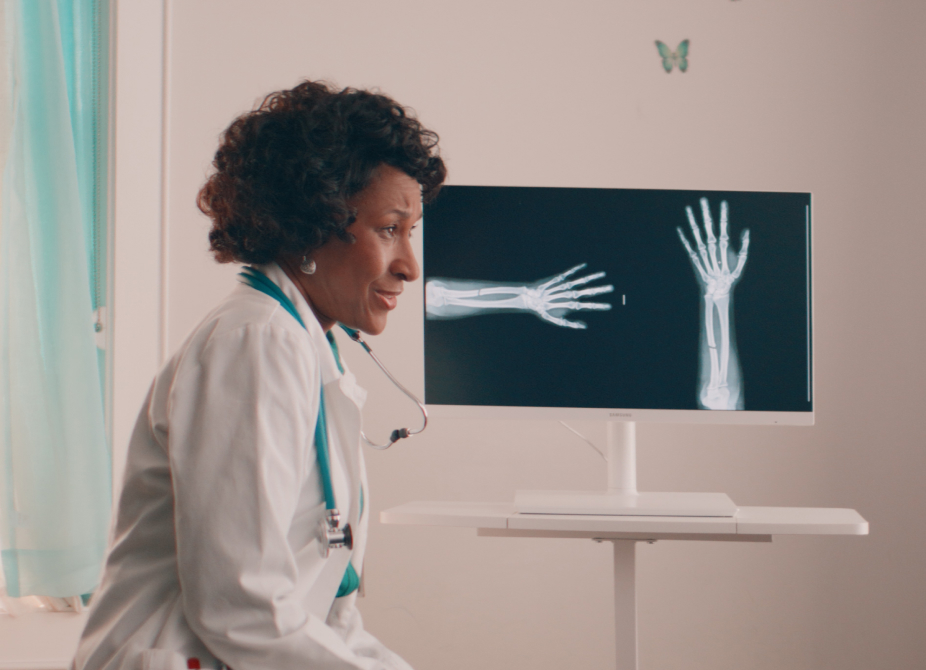To bring a new drug to market, the FDA requires pharmaceutical firms to perform expensive and time-consuming studies to demonstrate safety and efficacy. Hundreds of potential treatments can fall by the wayside without financial help. Private equity investments have supported treatments for life-threatening conditions, such as Leukemia, Alzheimer’s, heart disease, HIV, and breast cancer, and for several debilitating conditions, including rheumatoid arthritis, diabetes, and ulcerative coliti
PRIVATE EQUITY IS IMPROVING HEALTH CARE
Private equity plays a critical role supporting quality, affordable health care in the United States. Private equity-funded innovations have delivered more effective treatments and saved lives, helping lower health care costs, and increase access to lifesaving care for millions of Americans. Private equity has invested nearly $1 trillion into U.S. health care since 2006, representing nearly 12.7% of all health care investments across the same period. These investments have funded research into deadly diseases like Alzheimer’s and Parkinson’s, expanded and renovated facilities, modernized medical records and health care data, and made other needed investments.
Giving Doctors, Nurses, and Hospitals the Resources to Treat Patients
Providing first class care to patients is a full-time job. Private equity investment allows for health care providers to spend more time caring for patients and less time on administrative responsibilities, like burdensome paperwork and insurance claims negotiations.
Higher Employment Ratio
Private equity-backed hospitals employ a higher ratio of doctors, nurses, and pharmacists compared to their non-private equity counterparts, according to research from Indiana and Georgetown Universities.
More Time with Patients
Private equity-backed doctors and nurses spend more time with their patients according to research from Johns Hopkins University, Harvard Medical School, and the University of Oregon.
Improved Quality of Care
Private equity can “improve quality of care because physicians no longer need to focus on running a business” according to a report from the Medicare Payment Advisory Commission(MedPAC).
Investing in Medical Technologies
that Improve Lives
$280B
invested by private equity across more than 1,800 life sciences and medical device companies in the U.S.
$36B
invested to support life sciences and medical device companies during the pandemic.
900+
medical device and supply companies have been supported by private equity firms in the last 10.
Why is Private Equity Investing in Health Care?
Private equity provides health care companies with access to capital markets, lines of credit, pools of managerial skills, and experience in turnarounds. This critical investment lets doctors, nurses, and other health care providers focus on treating patients instead of running the back-room business operations and help life sciences and medical device manufactures bring innovative treatments to patients.
Supporting Nursing Homes During COVID-19 and Difficult Economic Times
Private equity is investing in nursing homes to improve their financial well-being and their quality of care at a time when skilled nursing homes accepting Medicare patients are facing reduced federal support.
– A study from the University of California, Los Angeles and Duke University found that private equity-owned nursing homes fared far better under COVID-19 than non-private equity-backed homes, with lower rates of cases and deaths.
- An October 2020 study from Weill Cornell Medical College found “no statistically significant differences” in staffing levels between private equity-owned nursing homes and other ownership types.
To bring a new drug to market, the FDA requires pharmaceutical firms to perform expensive and time-consuming studies to demonstrate safety and efficacy. Hundreds of potential treatments can fall by the wayside without financial help. Private equity investments have supported treatments for life-threatening conditions, such as Leukemia, Alzheimer’s, heart disease, HIV, and breast cancer, and for several debilitating conditions, including rheumatoid arthritis, diabetes, and ulcerative colitis.
Supporting Nursing Homes During COVID-19 and Difficult Economic Times
Rural America has a profound health care deficit, and much of that problem boils down to a lack of resources: relatively few providers, less insurance coverage, and fewer health care professionals compared to urban and suburban areas. Fortunately, private equity is filling that gap by investing in urgent care providers that have identified business models that work in rural and underserved communities.
How is PE filling the gaps?
Private equity deals in outpatient clinics such as urgent cares have expanded in the past five years, with more than 250 deals completed in 2020 for more than $15 billion in value.
dummy-1[1]
Private Equity’s Improves Patient Care and Drives Innovation
For decades, private equity-funded innovations have delivered more effective treatments and saved lives.
Short header here
invested by private equity across more than 1,800 life sciences and medical device companies in the U.S.
Short header here
invested by private equity across more than 1,800 life sciences and medical device companies in the U.S.
Short header here
invested by private equity across more than 1,800 life sciences and medical device companies in the U.S.
Short header here
invested by private equity across more than 1,800 life sciences and medical device companies in the U.S.
Short header here
invested by private equity across more than 1,800 life sciences and medical device companies in the U.S.
Short header here
invested by private equity across more than 1,800 life sciences and medical device companies in the U.S.
Short Subhead goes here
PRIVATE EQUITY IS IMPROVING HEALTH CARE
For decades, private equity-funded innovations have
delivered more effective treatments and saved lives —
and, importantly, helped lower costs and increase
access to lifesaving care for millions of Americans.
To bring a new drug to market, the FDA requires pharmaceutical firms to perform expensive and time-consuming studies to demonstrate safety and efficacy. Hundreds of potential treatments can fall by the wayside without financial help. Private equity investments have supported treatments for life-threatening conditions, such as Leukemia, Alzheimer’s, heart disease, HIV, and breast cancer, and for several debilitating conditions, including rheumatoid arthritis, diabetes, and ulcerative colitis.



